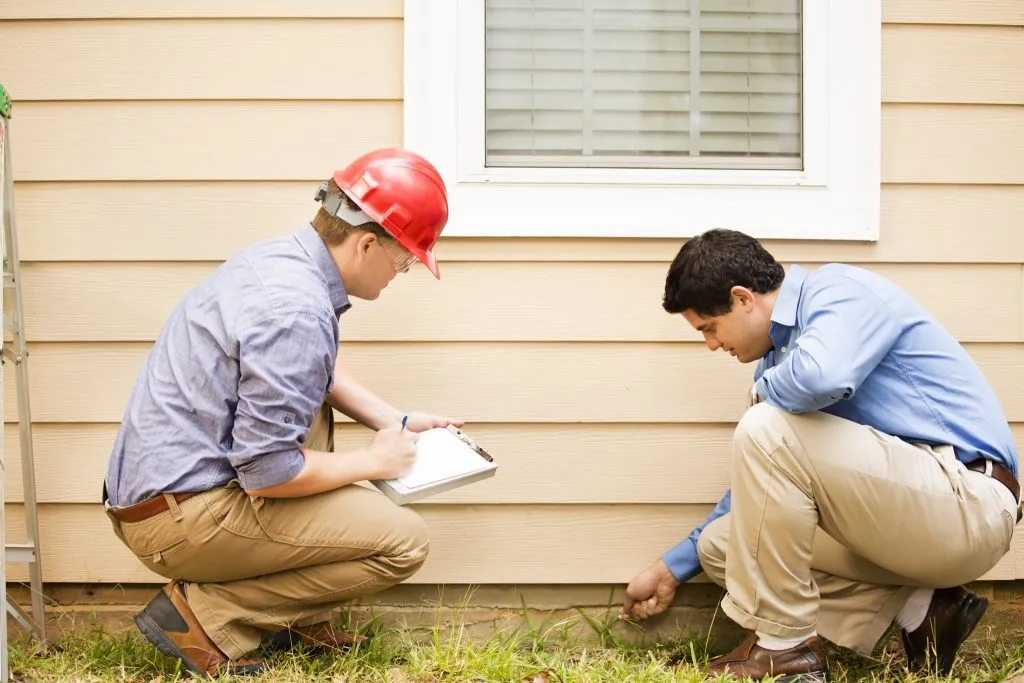In Escrow
Home Inspections

Buying a home is a significant investment, and ensuring that the property is in good condition is crucial. Home inspections play a vital role in the home buying process by identifying potential issues that could affect the property's value and your future enjoyment of it.
This guide will explore the importance of home inspections and provide a detailed overview of the home inspection process:
Schedule a Call or Login
to get access to this guide and more:

20+ Home Buying Guides
Detailed guides to help you through each step of the process

Advanced AI Assistant
AI trained specifically on real estate to help you with any question

Offer
Preparation
Offer guidance powered by real time market data and insights

Schedule a Call or Login Today
1. Why Home Inspections Are Necessary
Home inspections are essential for several reasons:
Identify Hidden Issues: Even if a home appears to be in perfect condition, there could be underlying problems that are not immediately visible.
Informed Decision-Making: A thorough inspection report provides you with detailed information about the property's condition, helping you make an informed decision.
Negotiation Leverage: If significant issues are found, you can negotiate repairs or a price reduction with the seller.
Peace of Mind: Knowing the true condition of the home gives you confidence in your investment.
2. Common Issues Found During Inspections
During a home inspection, several common issues may be discovered, including:
Structural Problems: Foundation cracks, roof damage, and other structural issues.
Plumbing Issues: Leaks, outdated piping, and water pressure problems.
Electrical Concerns: Faulty wiring, outdated electrical panels, and insufficient electrical capacity.
HVAC Systems: Malfunctioning heating and cooling systems.
Pest Infestations: Evidence of termites, rodents, and other pests.
Mold and Mildew: Signs of water damage and mold growth.
3. How to Choose a Qualified Home Inspector
Selecting a qualified home inspector is crucial for a thorough and accurate inspection. Consider the following when choosing an inspector:
Certifications and Licenses: Ensure the inspector is certified by a reputable organization, such as the American Society of Home Inspectors (ASHI) or the International Association of Certified Home Inspectors (InterNACHI).
Experience: Look for inspectors with extensive experience in the industry.
References and Reviews: Ask for references and read online reviews to gauge the inspector’s reputation.
Sample Reports: Request a sample inspection report to understand the level of detail provided.
4. The Home Inspection Process: Step-by-Step
Understanding the home inspection process can help you know what to expect. Here’s a step-by-step guide:
Scheduling the Inspection: Arrange for the inspection as soon as possible after your offer is accepted.
Attending the Inspection: It's beneficial to be present during the inspection to ask questions and see any issues firsthand.
Inspection Duration: A typical home inspection takes 2-4 hours, depending on the size and condition of the property.
Inspector’s Evaluation: The inspector will evaluate the home’s structure, systems, and components, including the roof, foundation, plumbing, electrical, and HVAC systems.
Receiving the Report: After the inspection, you will receive a detailed report outlining the findings, including photos and recommendations for repairs or further evaluations.
5. Interpreting the Home Inspection Report
The inspection report can be lengthy and detailed. Here’s how to interpret it:
Summary Page: Focus on the summary page for the most critical issues.
Major vs. Minor Issues: Differentiate between major structural or safety issues and minor maintenance concerns.
Recommendations: Pay attention to the inspector’s recommendations for repairs or further evaluations.
Homa Assistant AI: Use Homa’s AI assistant to analyze and summarize the inspection report, helping you understand the key points and implications.
6. Negotiating Repairs or Price Reductions
Based on the inspection report, you may need to negotiate with the seller:
Request Repairs: Ask the seller to make necessary repairs before closing.
Price Reduction: Negotiate a lower purchase price to account for the cost of repairs.
Credits at Closing: Request a credit at closing to cover repair expenses.
7. Final Walk-Through
Before closing, conduct a final walk-through to ensure all agreed-upon repairs have been completed and the property is in the expected condition. This step helps confirm that there are no new issues since the inspection.
Conclusion
Home inspections are a vital part of the home buying process, providing valuable insights into the property's condition and helping you make informed decisions. By understanding the importance of inspections, choosing a qualified inspector, and effectively interpreting the inspection report, you can navigate the process with confidence. Utilize Homa’s AI assistant to analyze and summarize the disclosure, ensuring you have a clear understanding of the property’s condition. With thorough preparation and informed decision-making, you can secure your investment and enjoy peace of mind in your new home.